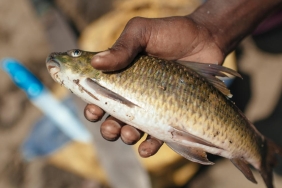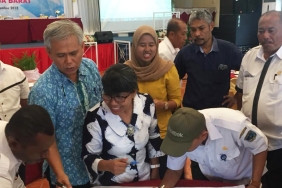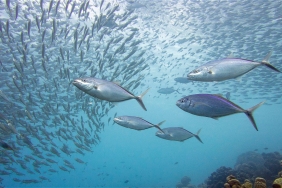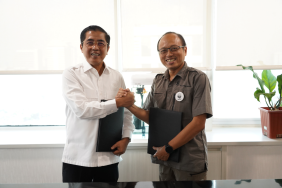EAFM-BASED FISHERIES MANAGEMENT IN WEST MANGGARAI
By Coral Triangle Team
West Manggarai Regency as one of the regencies in the region located in Fisheries Management Areas (WPP) 713 and 573 is considered to have a wealth of fisheries resources, which until now have not been managed properly. Fisheries policies carried out with an ecosystem approach need to be implemented to ensure the achievement of sustainable fisheries in the Regency.
WWF-Indonesia as part of the National Working Group II for Ecosystem Approach to Fisheries Management (EAFM), in collaboration with Artha Wacana Christian University and Kupang Agricultural Polytechnic has assessed the performance of fisheries management in this district with EAFM indicators in 2013 which provides a recommendation that the results of fisheries management in this area are moderate.
In order to improve the performance of EAFM fisheries management, WWF-Indonesia on August 14-15, 2014, together with the Kupang Agricultural Polytechnic team, as the EAFM learning center in East Nusa Tenggara, held a dissemination of research on sharks, manta rays, and EAFM-based sustainable fisheries in West Manggarai Regency. Located at the Labuhan Bajo Marine and Fisheries Office (DKP), this activity was attended by a number of stakeholders, namely the Marine and Fisheries Office, Bappeda, the Environment Agency, the Tourism and Culture Office, the Komodo National Park Office, as well as related parties such as fishermen representatives, dive operators, and a number of non-governmental organizations.
One of the problems that surfaced in the discussion was the lack of data availability related to habitat and ecosystem indicators, fish resources, and fishing technology that gave rise to the red color (poor value). Through this meeting, clarification was carried out by the assessment team with relevant stakeholders. Several points changed their score, including the number of violation cases in West Manggarai Regency. The Komodo National Park, represented by Lukman Hidayat, said that the value of violations in the EAFM report was too high. This is not as stated in the report owned by the Center. However, the expert team explained that the value can change as long as there is data related to the assessment indicators available.
At the end of the meeting, several things were formulated as well as a follow-up plan agreed upon by the participants. Among them, the expert team will prepare an academic paper based on the results of the dissemination related to two matters, namely the protection of sharks and manta rays and sustainable fisheries. Meanwhile, the follow-up is the formation of a working group across Regional Work Units (SKPD) in overseeing the implementation of EAFM which will be authorized by a Regent Decree.





